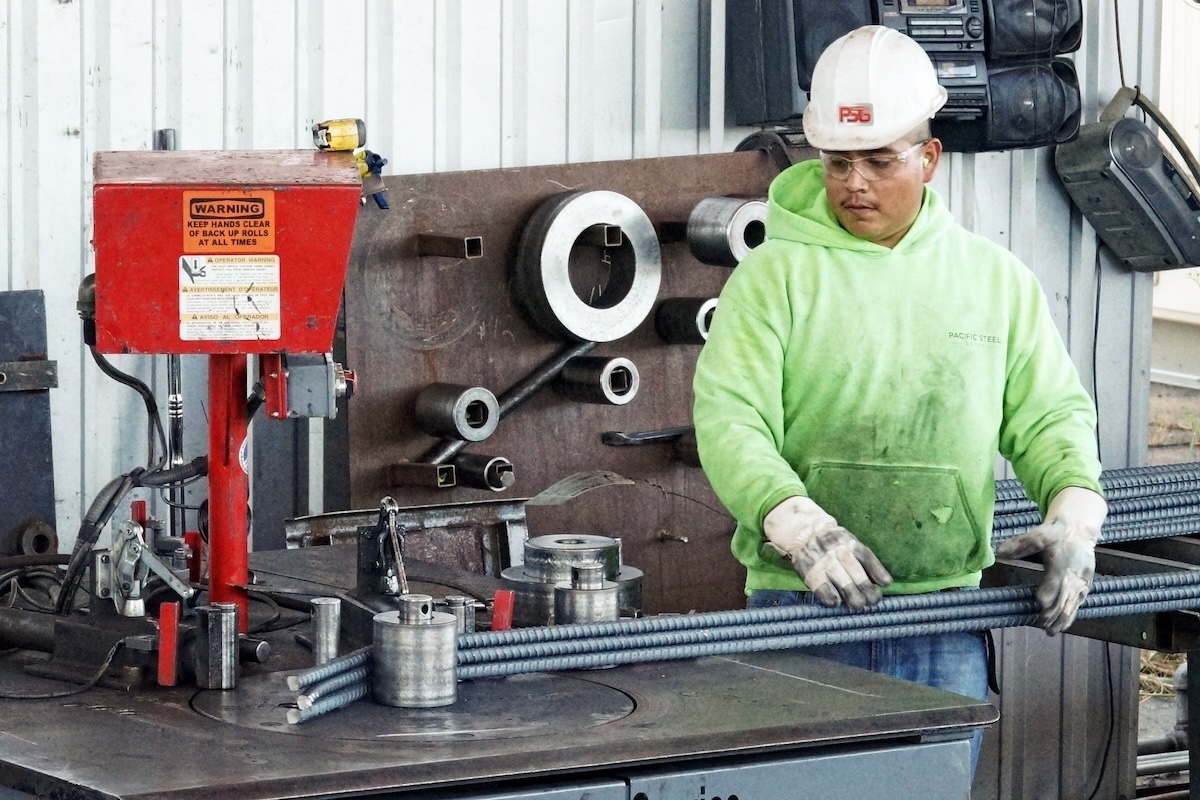Greetings Agents of Impact!
In today’s Brief:
- Scaling community infrastructure
- Electric pickup trucks
- Defending system-level investing
Featured: Deploy!
Bringing standards and certainty to financing for community infrastructure and the green transition. Organizations across the US are anticipating the announcement – expected any day – of who will get to manage parts of the Greenhouse Gas Reduction Fund. But they’re not waiting on the historic federal funding opportunity before designing standardized financial products that can be deployed at scale, contributing editor Rachel Reilly writes on ImpactAlpha. A half-dozen coalitions were formed last year to compete for the opportunity to deploy billions in capital and technical assistance to community lenders: green banks, community development financial institutions, local development finance agencies and other mission-oriented lenders. The GGRF program is likely to be a turning point as the amount of available community capital grows by nearly $20 billion almost overnight.
- Ready… set… go! Regional groupings are ready to roll (see, “In Cleveland, stakeholders mobilize to deploy climate funds for community infrastructure”). Calvert Impact Capital is part of Climate United, which is designing standardized products that could be adopted across its network of 350 community partners. The Milken Institute’s Community Infrastructure Center has hosted biweekly GGRF Learning and Collaboration calls. The Solar and Energy Loan Fund, or SELF, is parlaying more than a decade as a community green bank hybrid to offer “plug-in-play” lending products for other community lenders. Finance New Orleans last week partnered with Elemental Excelerator to deploy climate technologies in new and retrofitted single-family homes. The Tucson Industrial Development Authority is testing consumer demand for green home loans, energy grants and readiness programs to be ready to scale should the Tucson IDA receive GGRF funding.
- State projects, federal loans. The Department of Energy’s Loan Programs Office is best known for loans and guarantees for innovative climate tech solutions from the private sector. But a little-known authority gives the DOE’s $400 billion energy lending arm the ability to extend such support to green projects backed by state or Native-run energy financing entities such as green banks, housing authorities and economic development agencies. The Title 17 Clean Energy Financing Program can support emissions-reducing projects, or pools of projects, partly financed by state energy financing institutions, or SEFIs. The New Jersey Economic Development Authority and the New York State Energy Research and Development Authority are among the SEFIs soliciting green projects that could qualify for LPO support. ImpactAlpha’s Amy Cortese has more.
- Investor expectations. Following this month’s announcement of GGRF award winners, grantees are expected to begin deploying capital by mid-year. “The role of private investors will begin to come into focus as award winners scale existing efforts and pilot programs to roll out standard products and services,” writes Reilly, who is also a senior advisor at the Milken Institute. “We anticipate enterprise-level, fund-level and project-level investment opportunities to support residential rooftop solar installation and storage, microgrids, energy and water efficiency improvements for affordable housing, construction of net-zero homes in underserved communities, installation of electric vehicle charging stations, and more.”
- Keep reading, “Bringing standards and certainty to financing for community infrastructure and the green transition,” by Rachel Reilly on ImpactAlpha.
- Tomorrow’s Call. “The Great Deployment runs through the muni bond market.” Join Finance New Orleans’ Damon Burns, Calvert Impact Capital’s Beth Bafford, Solar and Energy Loan Fund’s Doug Coward, and Growth Opps’ Michael Jeans, tomorrow at 10am PT / 1pm ET / 5pm London. RSVP now.
Dealflow: Investing in Africa
African venture capital rebounds as global LPs re-up in Partech Africa. Africa was not spared from last year’s venture capital funding slowdown. But nearly all of the limited partners in Partech Africa’s first fund reinvested in its second fund; “some more than doubled their commitment,” said Partech’s Cyrul Collon. Collon noted a new set of strategic investors from the US, Middle East and Africa, “some of which are making their first investments in African tech.” Investors in Partech’s second fund include a $350 million Africa-focused investment partnership between France’s Bpifrance and Mubadala Investment Company, an Emirati sovereign investor. Both Bpifrance and Mubadala were early allocators of Partech’s 2019 Africa fund, which closed at €125 million.
- Fintech and e-commerce. Partech’s second pan-African fund, which secured €280 million ($304.5 million), “will address the continent’s growing technological challenges,” said Isabelle Bebear of Bpifrance, including education, mobility, healthcare, digitalization, energy and financial inclusion. The fund will write checks of up to $15 million for seed to Series C rounds. Partech Africa’s portfolio includes Nigerian e-commerce startup TradeDepot, the women-led fintech venture Pivo, and Ugandan mobility and asset financing company Tugende.
- Share this post.
TELO Trucks clinches $5.4 million to build a compact electric pickup truck. Electric trucks may defy the EV malaise. E-truck sales were surprisingly robust in China last year – a bellwether of market adoption. Their lower cost of ownership is making smaller, lighter commercial vehicles popular among fleet owners. California-based TELO launched last year with a design for a compact electric mini pickup truck, which is the size of BMW’s two-door Mini Cooper with room for five passengers and a five-foot bed. TELO’s model boasts a 350-mile range with a fast-charging battery pack. “Small is the new big, even in pickup trucks,” said Ali Partovi of San Francisco-based venture investor and accelerator Neo, which backed TELO’s financing round alongside Spero Ventures and angel investors.
- Green mobility. TELO has received nearly 3,000 pre-orders. The company will use the investment to meet demand from commercial fleet owners, and build its first set of 500 vehicles to begin customer deliveries by 2025. Tesla co-founder Marc Tarpenning, a partner at Spero Ventures, will join TELO’s board.
- Check it out.
Dealflow overflow. Investment news crossing our desks:
- Direct air capture company Mission Zero Technologies snagged £21.8 million ($27.7 million) in Series A funding from Breakthrough Energy Ventures, 2150 and other investors. (Tech.EU)
- Indian battery tech venture Lohum Cleantech raked in 1.2 billion rupees ($14.3 million) in Series B financing. Singularity Growth led the round. (Startup Story)
- Nigeria’s Zone raised $8.5 million in a seed round co-led by Flourish Ventures and TLcom Capital to build infrastructure for blockchain-enabled digital payments. (TechCrunch)
- Revolve Fund has leveraged $2 million in philanthropic funding since 2020 to catalyze $10.9 million in capital for businesses and nonprofits led by people of color. (The Daily Record)
Impact Voices: System-Level Investing
Truth and facts are the antidote to crony capitalism and authoritarian kleptocracy. Portfolio construction and security selection account for at most 25% of an investors’ returns. Performance is largely tied to the overall health of the economy and capital markets. Sinclair Capital’s Jon Lukomnik has pioneered system-level investing, along with The Shareholder Commons, The Investment Integration Project, PRI, the Predistribution Initiative, and others. Regulators, asset owners and managers around the world are taking note and beginning to implement tenets of system-level investing. Earlier this month, Lukomnik received a lifetime achievement award from the International Corporate Governance Network. He shared his remarks with ImpactAlpha.
- Don’t be silenced. System-level investing has been caught up in the backlash against environmental, social and governance, or ESG, investing, says Lukomnik. “The campaign is both cynical and fundamentally ignorant, economically,” he told the ICGN. “It would be laughable, except for the money and power behind it.” Sustainability opponents support “crony capitalism” over market-based decisions. “The ultimate result of that is an authoritarian kleptocracy that destroys economies,” he says. “Now is the time to speak more truth. More often. More forcefully. Louder.”
- Keep reading, “Truth and facts are the antidote to crony capitalism and authoritarian kleptocracy,” by Jon Lukomnik on ImpactAlpha.
Agents of Impact: Follow the Talent
Eugene Lewis, formerly with Every and Republic, joins the Robin Hood Foundation as senior program manager of venture acceleration and impact investments… Amir Rizwan, director of London Social Venture Fund and fractional investment director for Daring Capital, becomes Scotland-based impact investor SIS Ventures’ investment committee chair and joins its board.
Danish development finance institution IFU reappoints Lars Korgsgaard as its chief investment officer. Korgsgaard served a three-year term as IFU’s CIO from 2019 to 2022. IFU’s top leadership is also changing, with Lars Bo Bertram, the CEO of Bankinvest, taking on the DFI’s CEO role in June… Charlotte Magee, formerly with the Joan and Tim Fenton Founders Fund and Sorenson Impact Institute, joins Enable Ventures as principal.
👉 View (or post) impact investing jobs on ImpactAlpha’s Career Hub.
Thank you for your impact!
– March 19, 2024












